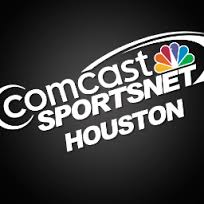Rockets Side with Comcast in Petition for Chapter 11 Protection for CSN Houston
The smarter way to stay on top of the multichannel video marketplace. Sign up below.
You are now subscribed
Your newsletter sign-up was successful

With just a week to go until a bankruptcy court hearing, the Houston Rockets finally weighed in on the future of CSN Houston, filing a motion that concurs with four Comcast affiliates to push the RSN partnership under chapter 11 protection.
However, the NBA franchise, which owns 32% of the RSN, which is also controlled by MLB’s Houston Astros (46%) and Comcast/NBCUniversal (22%), added a more moderate voice to the legal proceedings. The Rockets called for a period of negotiations for the parties, as opposed to Comcast’s push for an interim trustee to guide the RSN and the Astros’ motion to dismiss the case.
The Rockets filed an 18-page document on Oct. 21 with U.S. Bankruptcy Judge Marvin Isgur, who will preside over a hearing on Oct. 28. Four Comcast subsidiaries -- National Digital Television Center, CSN California, Comcast Sports Management Services and Houston SportsNet Finance – petitioned for involuntary Chapter 11 protection on Sept. 27 in the U.S. Bankruptcy Court in the Southern District of Texas.
CSN Houston has exhausted the $100 million loan from Houston SportsNet Finance that was used for start-up costs for the RSN, which can’t meet its financial obligations because of “total gridlock” among the partners when it comes to key operational decisions, notably affiliate contracts. Key decisions require unanimity, with the Astros and Rockets holding one vote apiece and Comcast a pair.
At the heart of the contretemps is the fact that CSN Houston only has been able to reach affiliate contracts with just a handful of small distributors and Comcast in the Houston DMA, while major players like DirecTV, Dish, Time Warner Cable, AT&T U-verse, Verizon FiOS and Suddenlink remain on the distribution sideline in Texas and in the other four states comprising its TV territory. RSN’s typically derive 80% of their revenue from monthly subscriber fees. CSN Houston has reportedly been seeking a monthly subscriber fee of $3.40.
Should Isgur dismiss the case, attorneys for the Rockets say the "Astros entities, as they have publicly intimiated" are likely to terminate the RSN agreement and reclaim their broadcast rights, which went unpaid during the last three months of the season.
In the Oct. 21 motion, the NBA team’s lawyers wrote that if that were to occur “it would compel the Rockets’ entities to terminate the Rockets’ agreement, thereby causing the network to implode.”
The smarter way to stay on top of the multichannel video marketplace. Sign up below.
The Rockets, though, are in Comcast’s corner in the belief “that a successful reorganization is possible under Chapter 11.” The Astros are not of that mind.
“(Chapter 11) will prove the best means of assuring full payment of creditors, realization of the owners’ equity investments, protection of the network’s business (including its employees’ jobs) and satisfaction of the fans’ expectation of high quality sports media coverage,” according to the Rockets court documents. “The alternative is liquidation.”
However, the Rockets disagree with Comcast, relative to its wont for the immediate installation of an interim trustee to oversee the RSN.
“It is unclear that allowing a new-found trustee (and only a trustee) to propose a plan will result in productive negotiations among the Comcast entities, the Astros entities, and the Rockets entities. To the extent that it instead impedes negotiations, the appointment of a trustee will defeat one of the core purposes of the chapter 11 process in this case—namely, to bring divergent parties together to forge a consensus that will maximize value for all stakeholders. Indeed, not only would the identification and education of a suitable person as trustee for this unusual situation inevitably consume much time and effort, but appointment of a “super trustee” with control over the plan process could well discourage negotiations among the parties and channel their efforts into influencing the trustee.”
The Rockets’ reps argued that the future of the RSN would be better served by the court appointing a “responsible officer to run the day-to-day operations of the Network and carry out the normal administrative functions required of a debtor in possession."
The Rockets also would prefer that the parties “engage in negotiations for one week to attempt to reach consensus on a path forward” and they “delay the question of whether to appoint an estate fiduciary, including a trustee, until it is absolutely necessary to preserve the value of the estate.”
The NBA franchise’s barristers aver that “perhaps the mere possibility of a future appointment of a trustee in the Chapter 11 case is just the incentive the network’s owners need in order to return to the table and address their disagreements about how to best maximize the network’s value with the benefit of the tools of chapter 11. The parties should not be deprived of this opportunity before they have even had the chance to take advantage of it.”
The Oct. 28 bankruptcy hearing comes two days before the Rockets tip off the 2013-14 NBA season against Charlotte.
